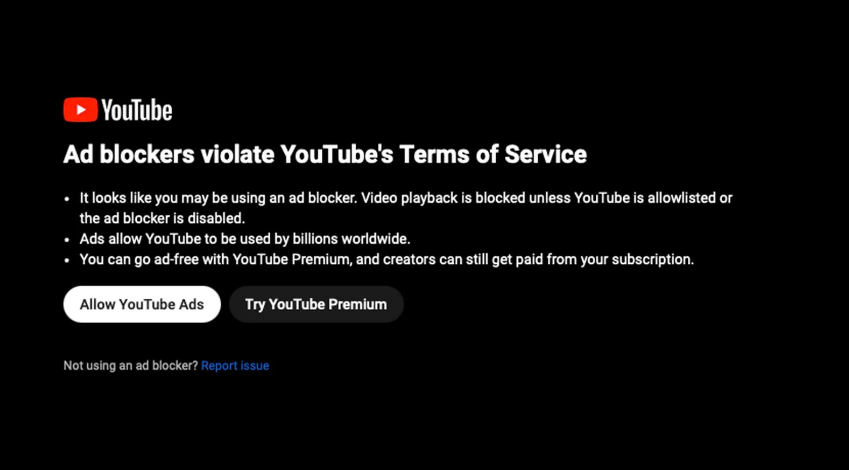
Google has declared its efforts to dissuade YouTube users from employing ad-blockers by offering a less appealing user experience to those detected using ad-blocking software on their browsers.
In an official statement, the American tech giant stressed that YouTube ads play a crucial role in supporting content creators, enabling them to sustain the production of fresh content. Consequently, YouTube may limit user access if ad-blocking services, such as Ad Blocker, are identified.
Google clarified that the decision lies with the users, allowing them to either continue watching YouTube with ads or opt for the ad-free viewing experience by subscribing to the paid YouTube Premium service.
For years, Google has been tightening its measures against ad-blocking software and add-ons on YouTube. However, the gravity of this endeavor heightened since June 2023 when YouTube began testing restrictions on certain users, permitting video watching only upon disabling ad-blocking software.
Google expanded the scope of testing in August, displaying a notification that users violated YouTube’s standards each time they attempted to watch a video on the platform with ad-blocking add-ons activated. Nonetheless, this message included a skip button, allowing users to bypass it and continue watching with ad-blocking software still in operation.
As reported by The Verge, one of its editors encountered difficulties bypassing the warning message to continue watching YouTube unless either disabling the ad-blocker or subscribing to YouTube Premium.
Adblock Plus, a widely used ad-blocking software on web browsers, issued a statement in mid-October confirming YouTube’s adoption of a stricter policy against ad-blocking. They highlighted that, at times, users would be unable to continue watching YouTube unless they allowed ads to appear.
Users of rival browsers, such as Firefox, Safari, and Edge, lodged complaints that YouTube was introducing a 5-second delay in video playback when ad-blocking software was detected, according to Android Authority.
However, Google refuted accusations of deliberately causing a negative experience for YouTube users on rival browsers, asserting that their focus is on ad-blocking software rather than competing browsers, as reported by The Verge.
It is noteworthy that YouTube ads contribute significantly to Google’s revenue, reaching approximately $29.31 billion in 2022, constituting 10% of the company’s total revenue.
The situation is expected to exacerbate by June 2024 when Google plans to implement a new update, named Manifest V3, to regulate the functioning of Chrome add-ons on web browsers. This update is anticipated to deteriorate the user experience when browsing the web with ad-blocking add-ons activated on Chrome. One of the modifications Google will introduce with Manifest V3 pertains to the operation of content filtering support add-ons.
With the forthcoming update, web users will be unable to install current-generation (Manifest V2) add-ons from the Chrome Web Store on their browsers. Manifest serves as a set of data about browser extensions, facilitating their efficient handling by the web browser and providing users with a richer experience.
Leave a Reply